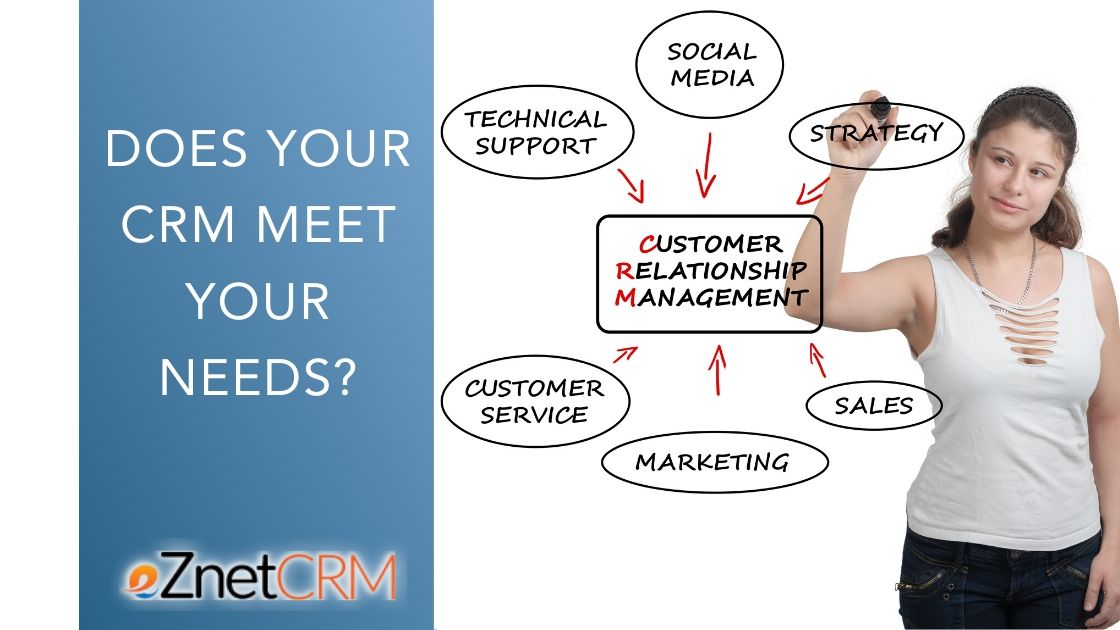Customer management is, by far, the most crucial aspect of every growing business. If you are unable to manage your customers properly, it is tough to survive in today’s competitive environment. When the competition is so intense in every vertical, it is essential to meet customer demands proactively.
If you are still managing your customers through spreadsheets and Post-it notes, you need to move over to a new and more innovative way of handling customers.
What you need is a CRM system.
Yes, a CRM system can help you manage all your customers properly and competently.
With CRM software, you can track all your customer interactions, streamline your sales and marketing efforts, build strong relationships with your customers, cross-sell and up-sell, improve interdepartmental coordination between your sales and marketing teams, and even discover new customers.
You can do all of this and more with your CRM system, provided you get the right one for your business.
Selecting the right CRM for your organization is crucial – as well as a tough decision to make. With so many solutions to choose from, and a plethora of other factors like deployment type, customization, scalability, cost, and other crucial aspects to consider, evaluating a CRM is not as easy as it sounds.
Let us, therefore, take you through the three most essential factors that you should consider before buying a CRM solution – user-friendliness, features and customer support.
Before you buy: how user-friendly is the CRM solution?
The first thing you need to remember while evaluating a CRM solution is your own business needs. To understand your needs, you need to consider the following points:
- Identify which processes you want to improve with the CRM system.
- The operational processes and workflows your company needs for optimum streamlined function.
- The number of people in your company who will be using it, and their role in your organization (sales, marketing, etc.)
- Integration needs.
- Available budget.
Why your CRM solution needs to be user-friendly
Customer experience is the most important yardstick by which to judge a product or service. The same is true for a CRM system. If the CRM system you buy does not offer an excellent user experience, your employees will avoid using it. As our blog post – “Best Practices to Increase CRM User Adoption” – covers, making sure that the solution you select is easy to use and intuitive is essential. One way to do so is to identify the stakeholders from each team and involve them in the CRM software selection process – as well as in the pre-implementation analysis – to provide ownership of the project. Also pay close attention during the product demo and trial run, which will provide additional opportunities to make sure it provides a seamless user experience.
Features your CRM must have
When evaluating a CRM system, you should never overlook the features that are essential for the growth and smooth functioning of your organization. Here are some questions to ask when evaluating CRM solutions:
Workflow automation
- Can the CRM system automate workflows?
- Can its automations support the entire customer?
- Does the system offer automated call logging?
- What skills are needed to customize workflows?
Integration
- Will the system integrate with your existing applications and data sources?
- What are its built-in integration capabilities?
Usability
- Is the user interface consumer-grade? A consumer-grade interface makes the CRM more visually appealing, more intuitive, more flexible, and more accessible.
- How much work does it take to customize the user interface?
- How consistent are the desktop and mobile interfaces? Keep in mind that most of your sales team will mainly depend upon the mobile version.
- Does the solution provide offline mobile capabilities?
Relationship intelligence
Find out whether the solution can facilitate call preparation time by displaying all the customer contact details and other relevant information with a name and an email. Also factor in the time you need to spend on research and maintenance so that you can spend more time to learn about your customers.
Does the CRM provider have a stable support team?
When you opt for a cloud-based CRM, it is important to evaluate the vendor as well as the product. CRM implementation is a crucial process in which the vendor has a vital role. You can opt for an on-premise CRM, but it is costly and time-consuming to implement and maintain. Before you finalize the solution, sign up for a free trial and see how it integrates with your existing applications and processes.
Be sure to evaluate the performance of the vendor’s support team. The CRM vendor support team should answer all of your questions during the implantation process. If the team replies to questions in a timely manner and promptly resolves issues, it’s good evidence that customer service is a core value, and will likely continue.
Following these guidelines can help increase your chances of finding a CRM solution that best suits the needs of your business. If you are considering a CRM solution, eZnet CRM offers an intuitive, user-friendly system that is easy for employers to implement and for employees to use. eZnet CRM provides the comprehensive support, training and technical capability critical to seamless functionality and end-user acceptance. Contact us to learn more, and to start your free 30-day trial period.
→', 'twentytwelve' ) ); ?>


